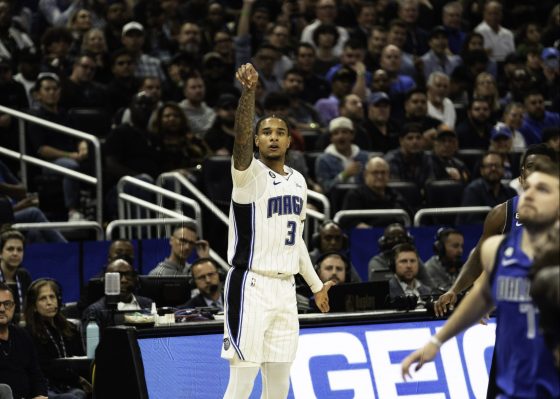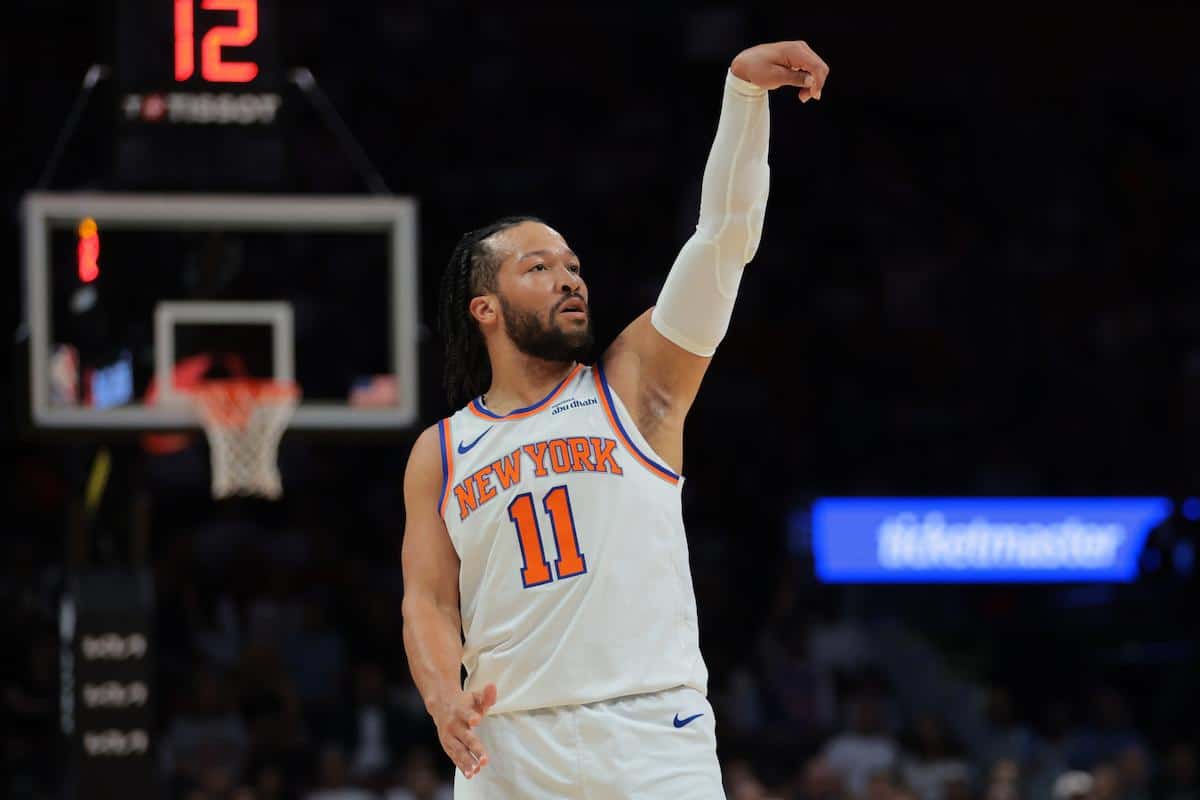The Celtics have a near-perfect rotation almost a quarter into the season. They’re 15-4, they’re atop the Eastern Conference standings, and they’re healthy.
They could, however, use one or two depth pieces to round out the roster and guard against injuries to starters. And while they have limited tradable assets, the best way to add to this roster remains a trade.
Who’s selling? The whole league is waiting on teams like the Chicago Bulls to decide whether they want to hit the reset button. The Toronto Raptors, Memphis Grizzlies, and Detroit Pistons all are performing worse than they had hoped, and all could be looking to shake up their rosters. Other teams like the Washington Wizards and Portland Trail Blazers aren’t focused on winning this year and could move veterans Boston might find intriguing. But is there a fit?
In this series, I’ll examine which players and teams could be good matches for Boston on the trade market. There are a few defensive guards the Celtics should look out for, from the Bulls and the Wizards.
Almost every playoff-caliber team should and will be on the phone with Bulls general manager Marc Eversley to inquire about a few players. The trio of Zach LaVine, Demar DeRozan, and Nikola Vucevic has run its course, and Chicago should try to capitalize with a combo of trades.
The Celtics won’t be players at that level. But one Bull who has been linked to Boston and other contending teams is Alex Caruso, a strong guard who shoots and defends multiple positions. He embodies everything Boston needs from its bench unit: grit, versatility, passing and shooting. And the Celtics could have him for the low, low price … of their entire reserve unit. Plus a first-round pick, and maybe more.
It’s true: Boston doesn’t have much in the way of tradable contracts, and they would have to send out at least $8.5 million in salary to match Caruso’s $9.4 million deal. That package would look something like this:
BOS receives: Alex Caruso
CHI receives: Payton Pritchard, Luke Kornet, Oshae Brissett, and a first-round pick (at least)
Note: this trade couldn’t be completed until late December because Brissett was an offseason pickup for Boston.
Caruso is undoubtedly an upgrade over Pritchard, though the third-year guard has had a pretty good year so far for the Celtics. But Boston is already pretty thin up front. Kornet and Brissett aren’t untouchable, but how comfortable are you with Neemias Queta and Lamar Stevens making up the frontcourt depth behind injury-plagued Kristaps Porzingis and 38 year-old Al Horford? Besides, Chicago probably wants more for Caruso, and other contending teams – like Philadelphia and Miami – have more to give.
Caruso doesn’t make sense for Boston right now (without getting creative – more on that later). Another Bull might, though …
BOS receives: Jevon Carter
CHI receives: Two second-round picks
Once again, this trade couldn’t be completed until later because Carter was signed this summer.
David Butler II-USA TODAY Sports
I’m guessing about the pick compensation (second-round picks are very much valued at variable levels), but the price should be somewhere in the one-to-three second-rounder range for Carter, a career 39% shooter from three-point range who defends exceptionally well for his size and can handle the ball a little. The 6’ 1” point guard was Jrue Holiday’s backup in Milwaukee last season and did a bang-up job keeping up the squad’s defensive intensity when Holiday was on the bench.
Carter has excelled in a limited role throughout his career, but this year he plays less than 15 minutes a night in the Bulls’ crowded backcourt. Plus, his $6.1 million salary slides right into Boston’s $6.3 million trade exception (created in a Grant Williams sign-and-trade with Dallas). Carter isn’t nearly as versatile as Caruso on either end of the floor, but could probably be had for no rotation pieces or meaningful picks.
That’s the conventional scoop on two Bulls trade targets: One (Caruso) probably unattainable, the other (Carter) possibly easy to obtain.
However, if the Celtics were dead-set on acquiring Caruso, they could get creative.
Traded player exceptions can’t be combined with other salaries in a deal. However, a deal for a player acquired via an exception can be aggregated with other players’ salaries 60 days after the initial trade is completed. Boston could try to get the highest-salaried player possible with the exception right away, and then combine that player with another to make an addition.
Boston has until December 10 to make that kind of deal, as that’s when the trade deadline will be 60 days away.
The largest attainable and fitting salary is that of Otto Porter Jr., who plays 12 minutes per game for the Toronto Raptors. A second-round pick should be enough to get Porter to Boston – and then a Caruso trade would be much more plausible in two months. It would look like this:
BOS receives: Alex Caruso
CHI receives: Otto Porter Jr. (or a similarly salaried player, acquired via TPE), Payton Pritchard, a first-round pick, and two second-round picks
In this deal, Boston would flip newly-acquired Porter for Caruso, letting Pritchard and the pick be the main incentive for Chicago to bite. Who knows if this pick compensation would be enough; Chicago probably won’t get two firsts, but they might favor a package that includes a more promising young player than Pritchard.
Boston could also try to work Andre Drummond into this deal for his rebounding and rim protection, though that would require moving another low-salaried player.
That might not be the right move for this Celtics squad. Improving in the margin without expending too much capital should be the priority, and this deal doesn’t fit that bill.
I would do this package instead, if I got to choose. Delon Wright – a big, defensive guard for the Wizards – would offer skills similar to Caruso’s, but might be easier to bring to Boston in this kind of framework. He would also require far less draft capital. That deal could look something like this:
BOS receives: Delon Wright
CHI receives: Otto Porter Jr. (or similarly salaried player, acquired via TPE), Dalano Banton and three second-round picks
Boston could get Wright, a career 35% three-point shooter, without giving up Pritchard. Allowing head coach Joe Mazzulla to pick from Pritchard and Wright off the bench would be a luxury, particularly if Pritchard is being picked on defensively. Three second-rounders is a decent haul, but Boston has a glut of second-rounders, including at least two in the 2024 draft.
Important caveat: It’s entirely possible that general manager Brad Stevens is content with the Celtics’ guard rotation. Plus, the luxury tax penalties of adding more than $6 million in salary could be up to more than $20 million. That’s a big commitment from ownership for a backup guard. And there are other question marks on the roster. Who, for example, will fill in when Porzingis and Horford have to sit? Can Sam Hauser be the only reliable forward off the bench?
It is certainly true, though, that Stevens has an opportunity to add matching salary – for next to nothing – that would make finding a trade deadline deal that much easier. But he’ll have to move fast.
Next up in this series, I’ll take a look at a few big men who could end up being Boston’s missing piece, including a breakout big forward, a solid seven-footer … and a familiar face.






